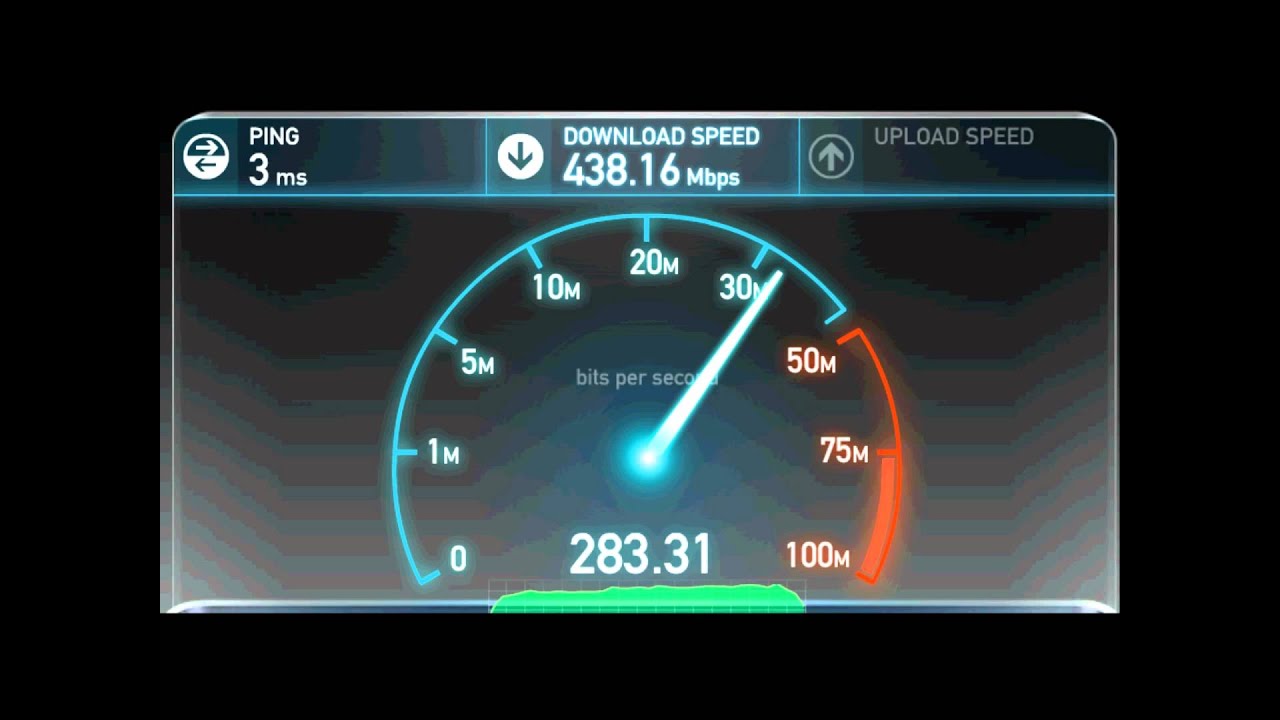Discover the best unlimited internet plans in 2024 with no data caps. Compare Google Fiber, AT&T Fiber, and Spectrum to find the perfect plan for your streaming, gaming, and browsing needs.
24 October, 2024 | Posted by: Pablo Mendoza
Category: Internet | No Comments

As internet usage continues to grow, the demand for unlimited data plans has surged. Whether you're a heavy streamer, a gamer, or simply have multiple users in your household, an internet plan with no data caps can provide peace of mind and cost savings. This guide explores the top providers offering unlimited data plans, highlighting their benefits, customer reviews, and more.
Unlimited data plans allow users to enjoy the internet without worrying about hitting data limits. This is particularly beneficial for households with multiple devices, as well as for those who stream video content, play online games, or download large files regularly. These plans offer cost efficiency by eliminating overage fees and providing a consistent monthly bill, regardless of usage. Moreover, unlimited data plans ensure that all users in the household can stay connected without compromising on speed or performance.
Google Fiber is known for its lightning-fast internet speeds and truly unlimited data plans. With speeds reaching up to 2 Gbps, Google Fiber is ideal for users who need the fastest possible internet for activities like 4K streaming, online gaming, and video conferencing. Although Google Fiber is only available in select cities, its reliability and performance make it a top choice for those who can access it. Plans typically start around $70 per month for 1 Gbps, with no data caps or contracts.
AT&T Fiber offers no data caps on most of its fiber plans, making it a great option for users who require high-speed internet without the worry of data limits. AT&T’s fiber network is widely available in urban and suburban areas, with speeds ranging from 300 Mbps to 1 Gbps. Pricing is competitive, starting at $55 per month for 300 Mbps, and the service is known for its reliability. However, AT&T Fiber is not as widely available in rural areas, which may limit access for some users.
Spectrum provides unlimited data on all its plans, with no contracts and wide availability across 41 states. Although Spectrum’s speeds are lower compared to fiber options, ranging from 200 Mbps to 1 Gbps, it is a solid choice for households that prioritize flexibility and affordability. Pricing typically starts at $49.99 per month for 200 Mbps, and Spectrum’s no-contract policy allows users to switch plans or providers without penalty. While Spectrum offers broad coverage, users may experience slower speeds during peak times.
| Provider | Plan Name | Speeds | Pricing | Data Cap |
|---|---|---|---|---|
| Google Fiber | 1 Gbps | 1 Gbps | $70/month | Unlimited |
| Google Fiber | 2 Gbps | 2 Gbps | $100/month | Unlimited |
| AT&T Fiber | Internet 300 | 300 Mbps | $55/month | Unlimited |
| AT&T Fiber | Internet 500 | 500 Mbps | $65/month | Unlimited |
| AT&T Fiber | Internet 1000 | 1 Gbps | $80/month | Unlimited |
| Spectrum | Internet | 200 Mbps | $49.99/month | Unlimited |
| Spectrum | Internet Ultra | 400 Mbps | $69.99/month | Unlimited |
| Spectrum | Internet Gig | 1 Gbps | $109.99/month | Unlimited |
Pros: Extremely fast speeds, no data caps, reliable service.
Cons: Limited availability, higher pricing in some areas.
Pros: Wide availability, competitive pricing, no data caps on fiber plans.
Cons: Limited availability of fiber in rural areas, potential equipment fees.
Pros: No data caps on all plans, wide availability.
Cons: Slower speeds compared to fiber, possible price increases after the first year.
Customer feedback on these providers varies, with Google Fiber consistently receiving high marks for speed and reliability, though its limited availability is a downside. AT&T Fiber is praised for its competitive pricing and performance, particularly in areas where fiber is available. Spectrum receives mixed reviews; customers appreciate the unlimited data and no-contract options but sometimes report issues with speed consistency and customer service.
For those who need the fastest speeds and have access to it, Google Fiber is the best choice. AT&T Fiber offers a reliable and affordable option for most users, particularly in urban areas, while Spectrum provides flexibility and no data caps across a wide coverage area, making it suitable for users who prioritize availability and no long-term commitments.
Discover the top internet providers for rural areas in 2024. Explore options like Viasat, HughesNet, and Rise Broadband, compare their speeds, pricing, and coverage to find the best fit for your rural internet needs
23 October, 2024 | Posted by: Pablo Mendoza
Category: Internet | No Comments

Access to high-speed internet has become a necessity in our daily lives, but for rural areas, reliable internet options remain limited. This guide explores the best internet providers for rural communities in 2024, focusing on the unique challenges these areas face, the top providers, and how they stack up in terms of speed, reliability, and customer satisfaction.
Rural areas often struggle with limited infrastructure, which directly impacts the availability and quality of internet services. The high costs associated with laying fiber or cable lines in sparsely populated areas often lead to slower speeds and higher prices for consumers. Additionally, many rural areas still rely on older technologies, such as DSL or satellite, which are less reliable and slower compared to urban internet services. Satellite internet, while a common solution, is susceptible to weather-related disruptions, making consistent connectivity a challenge.
Viasat has established itself as a leading satellite internet provider, particularly in rural areas where traditional broadband services are unavailable. The company offers a range of plans designed to meet different needs, from basic browsing to heavy streaming and gaming. Viasat's coverage is extensive, reaching even the most remote areas, but it comes with some drawbacks, such as higher latency due to the nature of satellite technology.
HughesNet is another major player in the satellite internet space, providing consistent speeds across all its plans. While HughesNet’s maximum speed is lower than Viasat’s, it offers more affordable plans, making it a viable option for budget-conscious consumers. However, HughesNet's data caps can be restrictive, particularly for users who require more data for streaming or online work.
Rise Broadband offers fixed wireless internet, an alternative to satellite that can provide lower latency and competitive pricing. While not as widely available as Viasat or HughesNet, Rise Broadband is a strong option where it is offered, particularly for users who need more reliable speeds and lower latency for activities like online gaming or video conferencing.
| Provider | Plan Name | Speeds | Pricing | Data Cap | Latency |
|---|---|---|---|---|---|
| Viasat | Basic | 12 Mbps | $50/month | 40 GB | 600-700 ms |
| Viasat | Advanced | 50 Mbps | $100/month | 100 GB | 600-700 ms |
| Viasat | Premium | 100 Mbps | $150/month | 150 GB | 600-700 ms |
| HughesNet | Basic | 25 Mbps | $59.99/month | 10 GB | 600-700 ms |
| HughesNet | Choice | 25 Mbps | $69.99/month | 20 GB | 600-700 ms |
| HughesNet | Prime | 25 Mbps | $99.99/month | 50 GB | 600-700 ms |
| Rise Broadband | Basic | 25 Mbps | $45/month | 250 GB | Lower than Satellite |
| Rise Broadband | Preferred | 50 Mbps | $65/month | 250 GB | Lower than Satellite |
| Rise Broadband | Premium | 50 Mbps | $85/month | Unlimited | Lower than Satellite |
Each provider has its own strengths and weaknesses, which can make a significant difference depending on your specific needs.
Viasat: offers higher speeds and larger data plans, making it suitable for users who need to stream or game regularly. However, the higher latency and pricing may be a concern for some users.
HughesNet: is ideal for budget-conscious consumers who do not require high data caps. The consistent speeds make it a good choice for basic internet needs, but the lower speeds and data limits can be restrictive.
Rise Broadband: provides a compelling alternative with lower latency and competitive pricing. It's a great choice for users who need reliable internet for activities like online gaming or video conferencing, though its availability is limited compared to satellite providers.
Customer feedback varies for each provider. Viasat generally receives positive reviews for its speed and reliability, though some customers express frustration with data throttling. HughesNet is praised for its consistent speeds, but its data caps are a common complaint. Rise Broadband garners positive reviews for its customer service and pricing, though coverage limitations are a frequent concern.
When choosing an internet provider in rural areas, your specific needs and budget will play a crucial role. If you need higher speeds and larger data allowances, Viasat is likely the best option. For those who are more budget-conscious and have basic internet needs, HughesNet is a solid choice. If available in your area, Rise Broadband offers lower latency and competitive pricing, making it an excellent choice for more interactive online activities.
Discover what internet speed you need in 2024 with our comprehensive guide. Learn about Mbps and Gbps, different household needs, how to test your speed, and recommendations for streaming, gaming, and remote work
24 October, 2024 | Posted by: Pablo Mendoza
Category: Internet | No Comments

Internet speed is measured in megabits per second (Mbps) or gigabits per second (Gbps). These units indicate how much data can be transferred per second. 1 Gbps equals 1000 Mbps. Higher speeds mean faster downloads, smoother streaming, and a better overall internet experience.
The internet speed you need depends on your household's online activities. Here’s a breakdown:
Speed Requirement: 1-5 Mbps
Ideal for: Checking emails, browsing the web, social media
Speed Requirement: 5-25 Mbps
Ideal for: Watching videos on platforms like Netflix or YouTube in high definition
Speed Requirement: 25-50 Mbps
Ideal for: Streaming ultra-high-definition content without buffering
Speed Requirement: 25-100 Mbps
Ideal for: Multiplayer gaming, downloading game updates, streaming gameplay
Speed Requirement: 10-50 Mbps
Ideal for: Video calls, large file uploads/downloads, VPN usage
Speed Requirement: 50-200+ Mbps
Ideal for: Households with multiple users streaming, gaming, and working simultaneously
Testing your internet speed is easy and can be done using online tools. Follow these steps:
Here are our recommendations for different internet activities, along with suggested plans from major providers:
Recommended Speed: 10-25 Mbps
Providers and Plans:
Recommended Speed: 25-50 Mbps
Providers and Plans:
Recommended Speed: 50-100 Mbps
Providers and Plans:
Recommended Speed: 20-50 Mbps
Providers and Plans:
| Activity | Recommended Speed (Mbps) | Providers and Plans |
|---|---|---|
| Basic Browsing & Email | 1-5 | Various |
| Streaming HD Video | 5-25 | AT&T Internet 25 ($50), Spectrum Internet ($49.99) |
| Streaming 4K Video | 25-50 | Google Fiber 1000 ($70) |
| Online Gaming | 25-100 | AT&T Internet 100 ($60), Spectrum Internet Ultra ($69.99) |
| Remote Work & Video Calls | 10-50 | AT&T Internet 50 ($55), Google Fiber 1000 ($70) |
Choosing the right internet speed for your needs ensures a smooth and efficient online experience. Here are some tips to help you make the best choice:
For more detailed information on choosing the right internet speed, read How Fast Does Internet Need to Be for Streaming, Gaming, and More?.
Discover the best internet providers for gaming in 2024. Compare top providers like AT&T, Spectrum, and Google Fiber based on speed, latency, and customer reviews to find the perfect internet service for your gaming needs.
15 November, 2024 | Posted by: Pablo Mendoza
Category: Internet | No Comments

In the world of online gaming, having a fast and reliable internet connection is essential. The key factors that affect gaming performance are internet speed and latency. Internet speed determines how quickly data is downloaded and uploaded, while latency (or ping) measures the delay between your actions and the game server's response. Low latency is crucial for real-time interactions in multiplayer games.
A high-speed internet connection ensures smooth gameplay, fast downloads, and uninterrupted streaming. However, even more critical for gaming is low latency. High latency can result in lag, which can be frustrating and can negatively impact your gaming performance.
Based on extensive research, here are the top internet providers for gaming in 2024:
Speed and Reliability: AT&T Fiber offers speeds up to 1 Gbps, making it one of the best options for gamers. Their fiber network ensures consistent performance with minimal interruptions. This high-speed connection is ideal for downloading large game files and ensuring smooth gameplay without lag.
Latency: AT&T Fiber boasts low latency, which is essential for competitive gaming. Players report average ping times as low as 5-10 milliseconds, making it an excellent choice for real-time gaming.
Customer Reviews:
For more details on internet speed requirements, you can check out What Internet Speed Do You Need for Streaming, Gaming, and More?.
Speed and Reliability: Spectrum offers speeds up to 940 Mbps, which is more than sufficient for most gaming needs. The wide availability and competitive pricing make it a popular choice. Spectrum's internet plans are designed to handle multiple devices simultaneously, ensuring that your gaming experience remains smooth even with other devices connected.
Latency: Spectrum’s network provides low latency, with average ping times around 15-20 milliseconds. This makes it suitable for most online games, though not as optimal as fiber options. The consistent performance during peak hours ensures minimal disruptions during gaming sessions.
Customer Reviews:
For more information on gaming and internet options, read How to Save Data When Gaming Online.
Speed and Reliability: Google Fiber offers speeds up to 2 Gbps, making it the fastest option available. This is ideal for gamers who demand the best performance. The ultra-high-speed connection ensures that you can download games, stream in 4K, and game simultaneously without any lag.
Latency: Google Fiber is known for its ultra-low latency, with average ping times as low as 1-5 milliseconds. This makes it the best choice for competitive gamers who require the lowest possible ping for real-time gaming.
Customer Reviews:
| Provider | Speed Options | Latency (Ping) | Price Range | Coverage |
|---|---|---|---|---|
| AT&T | Up to 1 Gbps | 5-10 ms | $50 - $90 | Extensive |
| Spectrum | Up to 940 Mbps | 15-20 ms | $49.99 - $89.99 | Wide |
| Google Fiber | Up to 2 Gbps | 1-5 ms | $70 - $100 | Limited |
Even with the best internet provider, there are several steps you can take to optimize your gaming performance:
For more in-depth tips on optimizing your gaming setup, read The Ultimate Internet Service Shopping Guide for Online Gamers.
For gamers in 2024, the top internet providers based on speed, latency, and reliability are:
In today’s digital age, having a reliable and fast internet connection is essential. Whether you’re streaming movies, playing online games, or working from home, a high-speed internet connection can make all the difference. Here’s a look at some of the top internet providers for high-speed internet in 2023, their offerings, and what sets them apart.
31 October, 2024 | Posted by: Pablo Mendoza
Category: Internet | No Comments

In today’s digital age, having a reliable and fast internet connection is essential. Whether you’re streaming movies, playing online games, or working from home, a high-speed internet connection can make all the difference. Here’s a look at some of the top internet providers for high-speed internet in 2023, their offerings, and what sets them apart.
Overview: Google Fiber is known for its ultra-fast internet speeds and straightforward pricing. Available in select cities, it offers plans that cater to high-speed internet needs without the hassle of data caps, contracts, or additional fees.
Plans:
Pros:
Cons:
Google Fiber consistently receives high marks for customer satisfaction and speed, making it a top choice for those in its service areas.
Relevant Links:
Overview: Xfinity by Comcast is widely available across the U.S. and offers a range of plans suitable for different needs and budgets. Known for its robust speeds, Xfinity is a solid choice for many households.
Plans:
Pros:
Cons:
Xfinity offers some of the highest speeds available, especially with its Gigabit Pro plan, but it comes with a higher price tag and additional fees.
Relevant Links:
Overview: Verizon Fios is renowned for its fast, fiber-optic internet service with symmetrical speeds and reliable performance. It’s a top contender for high-speed internet, particularly in the regions it serves.
Plans:
Pros:
Cons:
Verizon Fios is often praised for its low latency and reliable speeds, making it an excellent choice for heavy internet users.
Overview: AT&T Fiber offers a range of high-speed internet plans with widespread availability. Its plans are competitively priced and cater to various internet usage needs.
Plans:
Pros:
Cons:
AT&T Fiber is a reliable option for those looking for high-speed internet with extensive availability across the U.S.
Relevant Links:
Overview: CenturyLink offers fiber-optic internet with high speeds and reasonable pricing. It’s a growing provider known for its excellent customer service and performance.
Plans:
Pros:
Cons:
CenturyLink is an excellent choice for those in its service areas, offering high-speed internet without the high costs.
When choosing an internet provider, it’s essential to consider factors such as speed, pricing, availability, and customer satisfaction. Providers like Google Fiber and Verizon Fios offer excellent speeds and reliability but are limited in availability. On the other hand, Xfinity and AT&T Fiber provide extensive coverage with various plans to fit different needs. Evaluate your specific requirements and choose the provider that best meets your needs for high-speed internet.
© 2024 Konecteaze. All rights reserved.